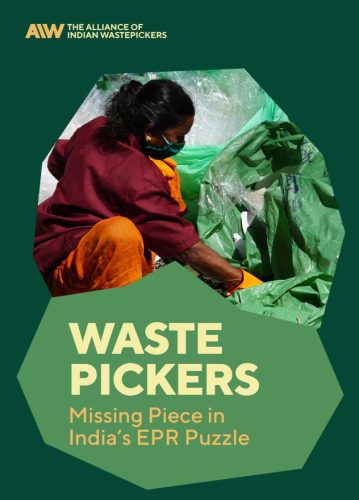The Alliance of Indian Waste Pickers (AIW) has released new research into Extended Producer Responsibility (EPR), and the impacts it has on Indian waste pickers.
Haris Najib, the Assistant National Coordinator of AIW, and co-author of the research Waste Pickers: The Missing Piece in India’s EPR Puzzle, says EPR is a relatively new concept that places the responsibility for a product’s entire lifecycle squarely on the shoulders of producers and plastic waste processors..
Although it seems to hold great promise, Najib says governments and corporations have failed to integrate waste pickers into the system.
“There is no single mention of waste pickers in the current EPR guidelines – there are four main stakeholders mentioned: producers, brand owners, importers. That’s it.”
“There are lots and lots of gaps in the guidelines. As for why waste pickers are left out, we don’t understand, because when it comes to waste management in India, waste pickers are the first players that come to your mind. Currently, EPR is primarily a volume game in India, with no social inclusion aspect to it.”
He says the research shows how these policies have a profound effect on the lives and livelihoods of waste pickers – and what the workers want is simple.
“Involve waste pickers in the EPR guidelines. Without this, nothing is going to change – we can’t even start advocating for waste pickers,” he said.
“They need to have in these guidelines clear-cut instructions for how local bodies ensure they can integrate waste pickers in EPR systems.”
The Alliance of Indian Waste Pickers believes understanding the perspectives of waste pickers is essential, as they are key stakeholders in the recycling chain.
Tweet


